Blog-4
now browsing by category
(Untitled)
Indo-European languages
various information on the indo-european languages, their spread, divisions and modern descendants
http://www.utexas.edu/cola/centers/lrc/general/IE.html
http://www.humanjourney.us/indoEurope.html
https://web.cn.edu/kwheeler/IE_Main2_Centum.html
http://www.ethnologue.com/subgroups/indo-european
http://www.nytimes.com/2012/08/24/science/indo-european-languages-originated-in-anatolia-analysis-suggests.html?pagewanted=all&_r=0
Psychoactive substance harm reduction/information
providing you with the facts, what to do if someone overdoses, where and why to get clean needles, etc.
http://www.drugwarfacts.org/cms/Syringe_Exchange
http://www.erowid.org/psychoactives/psychoactives.shtml
http://www.lycaeum.org/wiki/Main_Page
http://www.maps.org
http://www.bluelight.org
Privacy/encryption
with the leak of a domestic spying surveillance program on us citizens by edward snowden your confidential records and files may not be as secure as you intended them to be, the following is a list of tools or methods of encrypting your data and ensuring your privacy
https://www.gnupg.org/
https://play.google.com/store/apps/details?id=org.thoughtcrime.redphone&hl=en
https://www.torproject.org/
https://en.wikipedia.org/wiki/BitLocker
Languages on Languages(Blog 4)
Language Tree:
http://40.media.tumblr.com/0b7fc2e4a1cf6f5cd29353c706385316/tumblr_ndyeaiWf2E1qf3997o1_1280.jpg
Cognates:
http://www.friesian.com/cognates.htm
Spanish in Tagalog:
http://www.tagalogsayings.com/learn-tagalog/lessons/similarities-between-spanish-tagalog.html
PDF on loanwords:
http://elizabethclaire.com/store/media/general/free-download/Words-that-English-Has-Borrowed-from-Other-Languages.pdf
English in other languages:
http://theweek.com/article/index/242413/how-foreign-languages-mutate-english-words
Romance languages side by side:
http://ielanguages.com/romlang.html
Romantic and Germanic:
http://linguaphilioist.tumblr.com/image/97297548285
Chinese Influence on surrounding countries:
http://www.interestingchinese.com/language-exchange-china-japan.html
English- Japanese False Cognates:
http://kairosity.tumblr.com/post/67030637178/english-japanese-false-cognates
Aphasia and Bilingualism:
http://neurosciencestuff.tumblr.com/post/62625689063/aphasia-and-bilingualism-using-one-language-to
English- Spanish False Cognates:
http://spanishcognates.org/blog/top-20-false-cognates-esl-students
Faux Amis:
http://www.oxfordlanguagedictionaries.com/Public/PublicResources.html?direction=b-fr-en&sp=S/oldo/resources/fr/Difficulties-in-French-fr.html
Blog 4 (Andi Laidlaw, Adam Gilmore, Summer Mutawe, Cristo Avila)
Linkguistics!
Accents and Dialects:
Is there such a thing as a “gay accent?” I wouldn’t even touch this question were there not a decent amount of scholarly research about it. The notion of “talking gay,” after all, is a staple of homophobic parody. So before going further, let me state that I believe gay men speak with as wide an array of voices as heterosexual men. I don’t give credence to the idea of a universal “gay voice.” Read more
Here’s another interesting perspective on GayDialect:
http://www.macleans.ca/society/of-lisps-and-linguistics-the-power-of-the-gay-voice/
More on accents and dialects:
http://media.her.ie/wp-content/uploads/2014/04/tumblr_m9ujoh5EF11qcazydo3_500.gif
http://media.tumblr.com/tumblr_mf6s5s8Xbw1rol1w1.gif
Abbrevs and Misplelings:
When two friends created the site I Can Has Cheezburger?, in 2007, to share cat photos with funny, misspelled captions, it was a way of cheering themselves up. They probably weren’t thinking about long-term sociolinguistic implications. But seven years later, the “cheezpeep” community is still active online, chattering away in lolspeak, its own distinctive variety of English. Read more
Imitation Theory:
Check out this article on children recognizing the language of the country they were born (but not raised) in:
http://www.columbiachronicle.com/health_and_tech/article_1765d862-797f-11e4-968f-27ec0ff6f1cd.html
Creoles:
From our very own Professor Bigham on universal linguistics:
The Fulani have not only lost many herds to rustlers, they may be losing their language as well. But the language is rising in Europe and the USA, where it is studied in a total of 14 universities. Read more
Animals and Language:
Animals communicate with each other, and sometimes with us. But that’s where the similarity between animals and us ends, as Jason Goldman explains: http://www.bbc.com/future/story/20121016-is-language-unique-to-humans
Con Slobodchikoff at Northern Arizona University has done some of the most amazing studies in animal communication and cognition. Using sonograms to analyze the distress calls of Gunnison’s prairie dog, one of five species of prairie dogs found in the U.S. and Mexico, he has found that prairie dog colonies have a communication system that includes nouns, verbs, and adjectives. They can tell one another what kind of predator is approaching — man, hawk, coyote, dog (noun) — and they can tell each other how fast it’s moving (verb). They can say whether a human is carrying a gun or not. Read more
Speech and the brain
The brain is a hub for many things, language, motor functions and ultimately life. As far as language goes it is made up of different regions that process everything from sounds, to visual information and sensory perception.
Language processing is a very intricate and interesting function when you break it down to the simplest most specific details. Many of us never think about how much the body is doing all at once, from the breaths taken to the muscles put into motion to all the movements of the mouth, all of these functions are controlled by the brain.
The brain is so complex when it comes to processing sounds/speech, it recognizes voices, and determine the mood of the speaker, where the sound/speech is coming from.
West Chester Linguistics fun facts!: http://www.wcupa.edu/_academics/sch_cas/ling_stu/facts.asp
Linguistics is even on Pinterest:
https://www.pinterest.com/Aleflawyer/languages-and-linguistic-facts/
And 50 facts that we supposedly didn’t know about language:
http://www.edudemic.com/language-quiz/
Native or foreign? Globalization of English or English as a global language?
Nowadays english has been spoken by so many people around the globe. some see this phenomena as a gift and other consider it a curse. some argue that this globalization of the language could cause the language to change and die. other see it as the way to a bright better future. it follows are some links that are related to this subject.
What Global Language?
http://www.theatlantic.com/magazine/archive/2000/11/what-global-language/378425/
Across cultures, English is the word:
http://www.nytimes.com/2007/04/09/world/asia/09iht-englede.1.5198685.html?pagewanted=all&_r=0
Subcontinent raises its voice:
http://www.theguardian.com/education/2004/nov/19/tefl
The literary dimension of the spread of English: creativity in a second tongue:
http://courses.nus.edu.sg/course/ellthumb/site/doc/23.html
English is a Germanic Language!!!!
Although many words in english are borrowed from non-germanic languages (mainly romantic languages) English is still considered to be a germanic language. like its other sisters (Frisian, Flemish, Dutch, Afrikaans, German, Yiddish) english has been placed under the west germanic languages list by linguists.This intresting article explains why.
English as a Germanic language:
http://carolinagsalamanca.webs.com/RD_FULK-_English_as_a_Germanic_Language.pdf
The World’s Most Widely Spoken Languages???
due to its wide spread, many think that english is the most widely spoken language around the world, but is that a fact or only an assumption. the next link will answer this question.
The world’s most widely spoken languages:
http://www2.ignatius.edu/faculty/turner/languages.htm
Linguistic Websites (Blog 4)
Cory Stapleton
Linguistic Links
Charles F. Hockett
http://www.princeton.edu/~achaney/tmve/wiki100k/docs/Charles_F._Hockett.html
Hockett’s Design Features of Language
http://www.phon.ox.ac.uk/jcoleman/design_features.htm
Phonology
http://www-01.sil.org/linguistics/GlossaryOfLinguisticTerms/WhatIsPhonology.htm
Phonetics of the American Language
http://www.uiowa.edu/~acadtech/phonetics/english/frameset-ad3.html
Semantics
http://www.britannica.com/EBchecked/topic/533811/semantics
Syntax
http://pandora.cii.wwu.edu/vajda/ling201/test1materials/syntax.htm
Transformational Grammar
Brief Summaries of Noam Chomsky Theories
http://quizlet.com/13442598/language-theory-noam-chomsky-and-psycholinguistic-theorysyntactical-model-flash-cards/
Sociolinguistic Basics
http://www.pbs.org/speak/speech/sociolinguistics/sociolinguistics/
Acting in Dialect
http://www.wral.com/lifestyles/travel/blogpost/1838699/
Dialect/Accent
http://dialectblog.com/2011/01/28/dialect-vs-accent/
Dialect Map of the United States
http://www.huffingtonpost.com/2013/06/06/dialect-maps_n_3395819.html
American Sign Language
American Sign Language, despite not being a voiced language, is in fact a fully complex, linguistically complete language. I began learning ASL when I was in 6th grade and continued practicing up until college.
Here is a link for the signs of the alphabet:
Along with a video which shows how to move your hands between each letter. It is really important to play close attention to each gesture; one missed movement and you could be saying something entirely different!
Here are some of the common errors of many signers:
- Wrong handshape-
https://www.youtube.com/watch?v=fF808PcfMI0
- No Facial Expression-
https://www.youtube.com/watch?v=tCeuf2sZO28
- Switching between hands-
https://www.youtube.com/watch?v=sn79_mj-tTc
This link shows the basic 100 ASL signs
Facial expressions/lip movements/sounds are also ways to express meaning. When asking a question you raise your eyebrows, when telling a story you use different mouth gestures to convey meaning; similar to how we use intonation when we speak.
It is an animated language, similar to how we change our pitch and tone. Monotone speakers are difficult to listen too, this is also true in ASL, without any expression and animation, it can be difficult to stay in conversation.
ASL has a specific structure, though different than English. However, there is a little more flexibility within ASL compared to English.
“I am a student” could be signed
“I student I”
“Student I”
“I Student”
- http://www.lifeprint.com/asl101/pages-layout/syntax.htm
- http://www.lifeprint.com/asl101/pages-layout/grammar.htm
We have learned what areas of the brain are more geared towards language processing and communication. Just as aphasia affects speakers, it also has an affect on signing, called sign aphasia.
Similar to writing, ASL users can be either be right or left hand dominate, though many times both hands are used, in fingerspelling, there is a hand that is usually more dominate than the other.
Similar to other language, ASL also has slang
And just as we have different dialects of english, there are different dialects of ASL
Blog-4 Comparing Languages
Here are some linguistic-related links that I found fun and interesting.
–This is a link to a website that lists the 10 most spoken languages in the world. The order of the languages was not what I expected:
http://listverse.com/2008/06/26/top-10-most-spoken-languages-in-the-world/
–Here are a few links that show linguistic differences between English and some of the other most spoken languages in the world:
-English vs. Russian
https://prezi.com/8ohhlgsb8puc/difference-between-the-languages-english-and-russian/
-English vs. Mandarin
http://www.slideshare.net/sheilacook/english-mandarin-comparision-presentation
-English vs. Spanish
http://esl.fis.edu/grammar/langdiff/spanish.htm
–This link charts out the level of difficulty for English speakers to learn different languages:
http://www.effectivelanguagelearning.com/language-guide/language-difficulty
–Both of these links explain English syntax:
http://andrew.gibiansky.com/blog/linguistics/why-syntax/
https://www.youtube.com/watch?v=luiUK4tMjy8
–Here are some fun quizzes that relate to Linguistics:
-Attempts to detect which English-speaking region of the world you’re from based on how you organize words in sentences.
http://www.gameswithwords.org/WhichEnglish/
-This quiz tests you to see how well your vocabulary is.
http://www.gameswithwords.org/VocabQuiz/
-This quiz relates to the Stroop Test.
http://www.gameswithwords.org/IgnoreThat/
–This link shows all of the many acronyms that have developed since the use of technology and cell phones became more popular.
http://www.netlingo.com/acronyms.php
–This article discusses an arising concern about this newly developed internet lingo and its effects on English language as a whole.
http://www.boston.com/business/technology/articles/2008/06/16/is_language_dead_or_evolving/?page=full
This is a detailed map of Americans’ word choice to refer to a soft drink based on their region. Read the rest of this page »
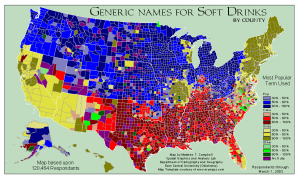
Language Scramble

Growing up in a very diverse city, and also in a multilingual and very worldly house hold is something that many people could wish for. I on the other hand found it as a struggle, even though as a grew up I found it to be awesome and I am very thankful for it. The main language spoken in my house is English, although there is also a lot of Tagalog that is spoken as well. My grandmother always tried to teach me Tagalog, and at the least have me understand it, but that never came close to being a success. English was my first language, but at the age of 3, I was enrolled in a Spanish immersion school beginning in Pre-k, which would later remain my source education for the next 7 years until I graduated the 5th grade. All of my classes were in Spanish everyday except for an hour or two that were in English, where we were taught the language as if were a second language to those who had leaned it as their first. Being surrounded by the culture, people and language, I feel and know that I have adopted the culture as my own by growing up around it my whole life, not just in my school, but in my neighborhood and community as well. It became hard at home since my extensive vocabulary and way of thinking and learning was basically all in Spanish, and my parents did not know how to speak Spanish and barely understood it as well. Therefore, there was a communication barrier which most kids at a young age do not have with their parents. This was also a struggle when I went to middle school, since all of my classes were now in English and only in Spanish a few times a week. Since I was more dominant in the Spanish language at this point, the way I read, spoke and wrote was affected and it did not seem as if I spoke much English at home. I spoke, read and wrote as if I were directly translating from Spanish to English without any form of grammatical rules. Even to this day you can see it in my writing or even hear it in the way I speak. When I got to high school, I began to learn French. There are many similarities between Spanish and French, therefore I was able to pick up the third language very quickly and easily, yet I would also mix up my vocabulary and the way I would pronounce words. With practice, I was able to overcome this problem.
LANGUAGE:
Even though I never really got to learn the language besides counting to 3, here is a video on how to learn to speak basic Tagalog:
https://www.youtube.com/watch?v=HFkm-XaKPj0
Since people in England speak English as well, here is a video on how to speak with a British accent since people feel they sound more sophisticated when they speak in the accent… it’s also just very fun to speak in!:
https://www.youtube.com/watch?v=ldAKIzq7bvs
CULTURE:
Even though I do not embrace it as much as I should, the Filipino culture is very unique from the mixed Spanish, American and Islander culture. Here are two links that talk about the culture in the Philippines.
http://www.kwintessential.co.uk/resources/global-etiquette/philippines-country-profile.html
http://itsmorefuninthephilippines.com/cultural-discoveries/?page_id=647
On my dads side, I am more exposed and linked to the British/ European side when it comes to what I grew up with.
http://www.kwintessential.co.uk/resources/global-etiquette/uk.html
Here is some cultural Filipino food. It may not always be that appetizing looking, but it sure is delicious!:
http://www.buzzfeed.com/melissaharrison/delicious-filipino-foods
I’ve never been a big fan of British food, but here’s a peek:
http://www.cookingchanneltv.com/recipes/british-food-and-recipes.html
Geography:
The Philippines is made up of thousands of islands that make up the whole country, with some of the most beautiful beaches and scenery that you will ever see in your life.
http://www.thephilippines.com/p/philippines-photo-gallery.html#.VH2ND76GnzI
Here are some pictures of classic sights from England, but mostly London since that’s where my family is from:
http://www.touropia.com/tourist-attractions-in-england/
http://www.touropia.com/tourist-attractions-in-london/
(Yes, these palace guards do exist in real life, they are not an Austin Powers creation)
Just be careful and watch out for the aggressive taxi drivers that swarm the city!! The British are also known for their colorful vocabulary and sailor mouths..
https://www.youtube.com/watch?v=1eSG6fs-ng0
Gardening and Sustainability, Who Could Ask For More?
By Laura Kalmanson
Starting out your own garden? Check out how to beautify your backyard!
Maybe you already have a good thing going and want to try something new and different to spice up your garden. Look at these crazy plants:
http://www.buzzfeed.com/peggy/insanely-cool-conversation-piece-plants-for-your-garden
Feng Shui is all fine and dandy for a regular, run of the mill type of garden, but you want to grow your food! Just a beginner? Look here for easy startups:
http://eartheasy.com/grow_backyard_vegetable_garden.html
Beyond a beginner? Want to help build a sustainable earth? Check out aquaponics, it’s awesome
http://greengrotech.com/what-is-aquaponics-and-how-does-it-work/
http://aquaponics.com/page/build-a-mini-aquaponic-system
Speaking of sustainability, the current consumption of earth’s resources is not sustainable. Learn about it here:
http://www.culturechange.org/issue19/sustainconsum.htm
Can you talk the talk?
http://www.epa.gov/sustainability/basicinfo.htm
http://www.wri.org/blog/2013/03/new-language-sustainability-risk-and-resilience
There are many ways you can be sustainable!
At home: http://www.context.org/iclib/ic35/30ways/
Even in college: http://www.topuniversities.com/blog/8-tips-more-sustainable-campus
One of the best ways you can be sustainable is to encourage carbon fixing with a healthy garden. Tune in to AM 760 to hear about gardening here in San Diego.
http://www.760kfmb.com/category/28006/home-garden
At San Diego State, you can be sustainable throughout campus! Check out the map:
http://sustainablemap.sdsu.edu/dus/sustainablemap/
Before you go, here’s a fun new fact: Plants talk to each other! (Yes, linguists, we know it is not true language)
http://news.discovery.com/earth/plants/new-plant-language-discovered-140814.htm
Blog 4 – Slang-ish?
Back in the years of middle school, I had a final oral presentation that essentially dictated whether or not I moved onto the high school English class that I wanted. The only real guideline for the speech was that I teach about what I was passionate about. So partially as a small desperate preteen attempt to be “different” and partially because of the majority of my movie and music tastes at the time, I chose to write a passion speech about the 1990s.
The fact that I didn’t actually grow up in the 90s however proved to be challenging in terms of content, so I had to go off of the knowledge I gained from my nights of cheesy feel good movies on heartbroken Thursdays and preach about shit like Pablo Honey and how it was actually one of the most underrated albums ever.
Anyway, before I even knew what linguistics was, I picked up on some pretty cool things from watching some of my favorite movies, like how popular language, or “slang”, was so much different circa 1998 compared to the late 00s.
One of my favorite films like… ever, ended up being quintessence of mid 90s language.
Clueless fans eat your heart out. Here is a list of famous quotes and terminology from the movie. I thought it was kind of fun to think about the equivalents we have nowadays for what the words meant back then.
An eloquent demonstration and the language in action:
https://www.youtube.com/watch?v=Yf7MT1p1VNI
Here’s just a general example of 90s slang, too, if the whole valley girl thing doesn’t suffice.
http://www.theawl.com/2012/05/express-street-verbage
In lieu of this assignment, I thought maybe it’d be a good idea to date back a little further; what was slang like in the 80s? The internet did not disappoint.
http://www.liketotally80s.com/2009/05/80s-slang/
“Bag your face.” Priceless.
The movie “Heathers” also has some hilarious execution of popular language in the late 80s.
https://www.youtube.com/watch?v=2LkFNZauk90
https://www.youtube.com/watch?v=x2AxfjxwFxw (probably NSFW)
Now, veering away from slang in a decade type setting, I thought it might be cool to consider how slang differs (kind of how we learned earlier in the semester) by region… and what I came most frequently across was British vs American slang. So here’s that.
Some of this stuff is cringe worthy by the way, so brace yourself.
https://www.youtube.com/watch?v=6XxnlQEDgVI
https://www.youtube.com/watch?v=bmHcJnd5j9U
Australian vs American Challenge
https://www.youtube.com/watch?v=AMLQ9V-2f3A
General Australian Slang
https://www.youtube.com/watch?v=wcAIr2-tCeg
https://www.youtube.com/watch?v=dqM64TCr6pU
Blog 4 – Keana Sabin
When I was young, my parents made the mistake of only teaching me English rather than their natives tongues, Japanese and Tagalog. Because of school I had to learn a language and my parents pressured me to choose between the two languages. I chose Japanese.
Just like any other language you have to learn the language’s alphabet. Before learning Kanji, I had to memorize Hirigana, then Katakana.
http://16991978arwuws.files.wordpress.com/2010/08/i132831034_93948_52.gif
To remember hirigana and katakana, my senseis would play videos to help us remember. Like this:
https://www.youtube.com/watch?v=plvSpVSdJWU
Japanese seemed easy because you learn simple phrases and words like this:
https://www.youtube.com/watch?v=MYiEcPEZS2U
My opinion Japanese changed when I noticed the grammar is quite difficult to remember. I had a hard time remembering where to correctly place particles within my sentences. If it wasn’t that there’s certain ways speakers must structure their sentences to either appear polite or passive, or express past or present.
http://learnjapanese.com/grammar
It’s also really important that words are pronounced correctly otherwise they could mean something else or just sound weird to native speakers:
https://www.youtube.com/watch?v=QU34Rw-hF64
When taking Japanese classes at SDSU, I noticed lesson plans weren’t as simple as the ones in community college. SDSU teachers expected students to remember and write skits about holidays, customs and apply certain etiquettes (like in the links below). You only learning so muhc in class…Not having enough knowledge of certain vocabulary and sentence structure really made it difficult making a legitimate script that correctly corresponded and expressed presentation topics. Half the time my fellow classmates didn’t understand what was being presented.
Japanese bowing: https://www.youtube.com/watch?v=vdlNZJ_TFXU
White day: https://www.youtube.com/watch?v=IxtT9lK2rIs
It wasn’t skits we had to write essays. Japanese essays aren’t written left to right but rather right to left.
Examples:
On the right it goes title and then name and whatever you have to write about. Indenting is needed in particular areas.

https://www.flickr.com/photos/joannablack/2494295168/
http://qcpages.qc.cuny.edu/~tyabe/jpn03/items/genkouyoushi.pdf
Other things about Japanese:
Among the languages spoken around the world… Japanese isn’t one of the top spoken languages. The top spoken languages of our world is English, Russian, Spanish, Portuguese, Chinese, Arabic and German.

http://bemoneyaware.com/images/world/language.jpg
Many say use anime to learn Japanese. It’s quite exciting when you can understand sentences, phrases and words.
http://www.wikihow.com/Learn-Japanese-Using-Anime
Common Japanese words used wrong:
http://anime.about.com/od/animecommunity/tp/10-Japanese-Words-Otaku-Get-Totally-Wrong.htm

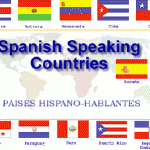
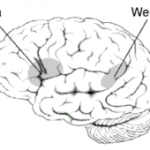


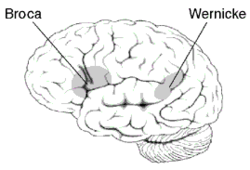
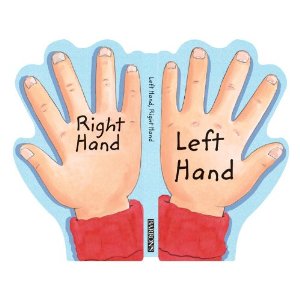













 D5 Creation
D5 Creation